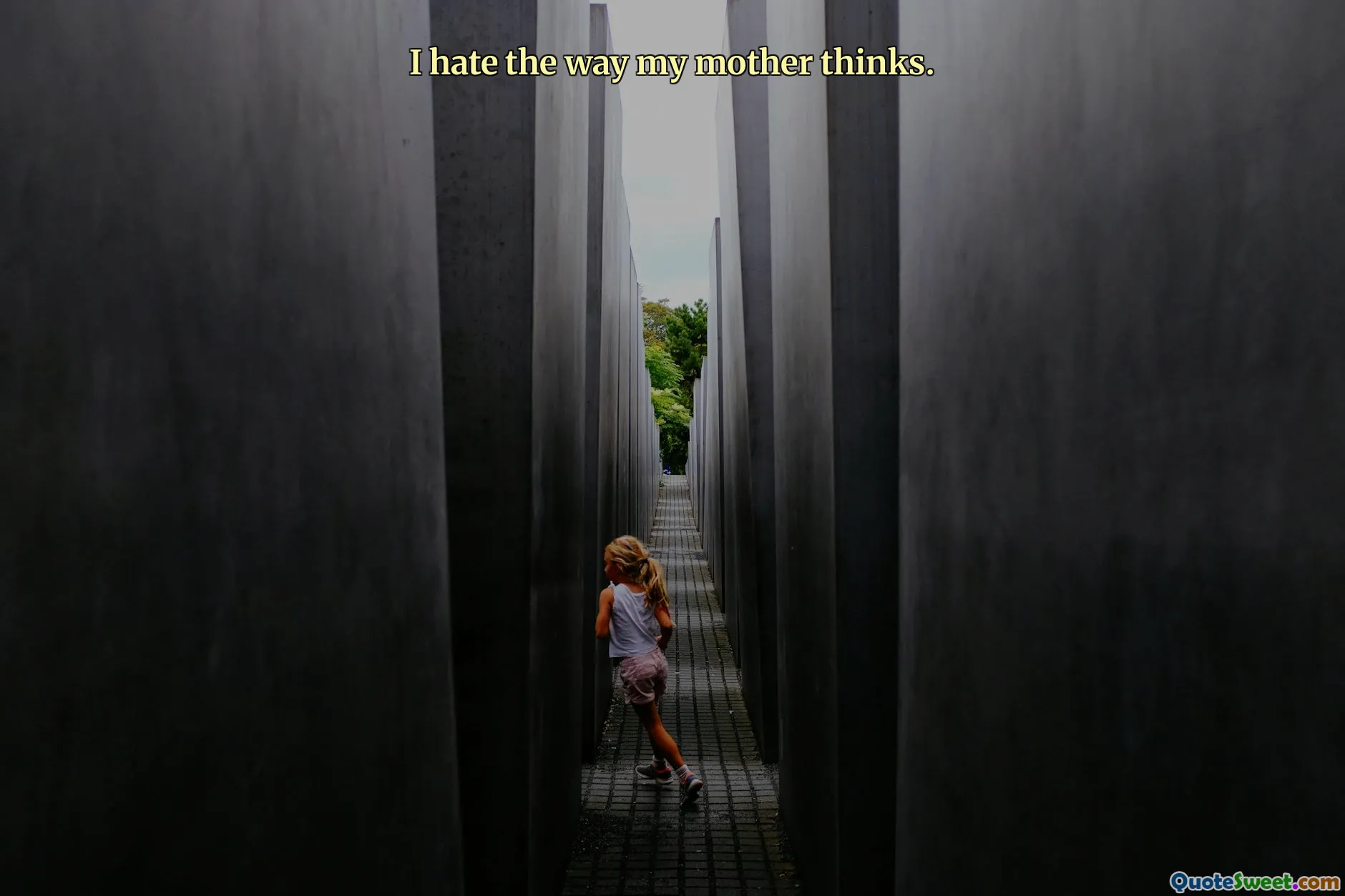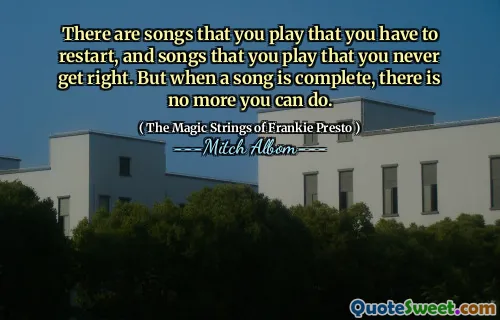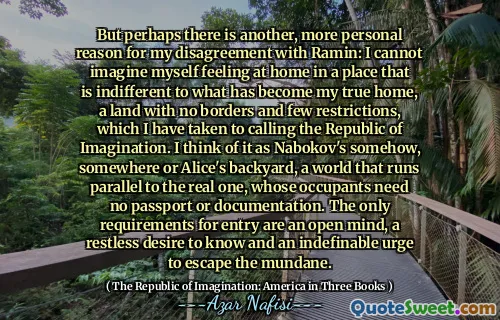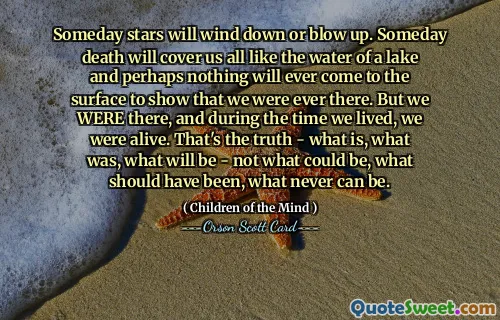
I hate the way my mother thinks.
This quote reveals intense feelings of frustration and conflict within a personal relationship, specifically between a child and their mother. Such sentiments are often rooted in misunderstandings, differences in values, or feelings of helplessness. When someone states that they hate the way another person thinks, it signals a profound disconnect—perhaps the individual struggles with accepting their mother's perspectives or beliefs, which leads to emotional pain or alienation. This kind of internal struggle is quite common in family dynamics, especially during adolescence or periods of personal growth, where one begins to challenge existing norms or viewpoints.
The feeling expressed might also reflect broader themes of autonomy and identity—individuals striving to find their own path often encounter resistance from family members adherent to traditional values or differing worldviews. It is essential to understand that such feelings, though distressing, are part of human emotional complexity and can serve as an opportunity for dialogue, reflection, and growth. Communicating these feelings honestly and empathetically may help bridge some misunderstandings, fostering mutual respect and understanding.
Moreover, this quote underscores the importance of emotional intelligence and patience within familial relationships. Recognizing that each person’s perspective is shaped by their experiences and beliefs can open pathways toward empathy. While it’s natural to feel hurt or angry in such situations, embracing a compassionate approach can aid in healing and finding common ground. Ultimately, this quote highlights the delicate balance of personal beliefs within the family fabric and the ongoing journey of navigating personal and relational development.











